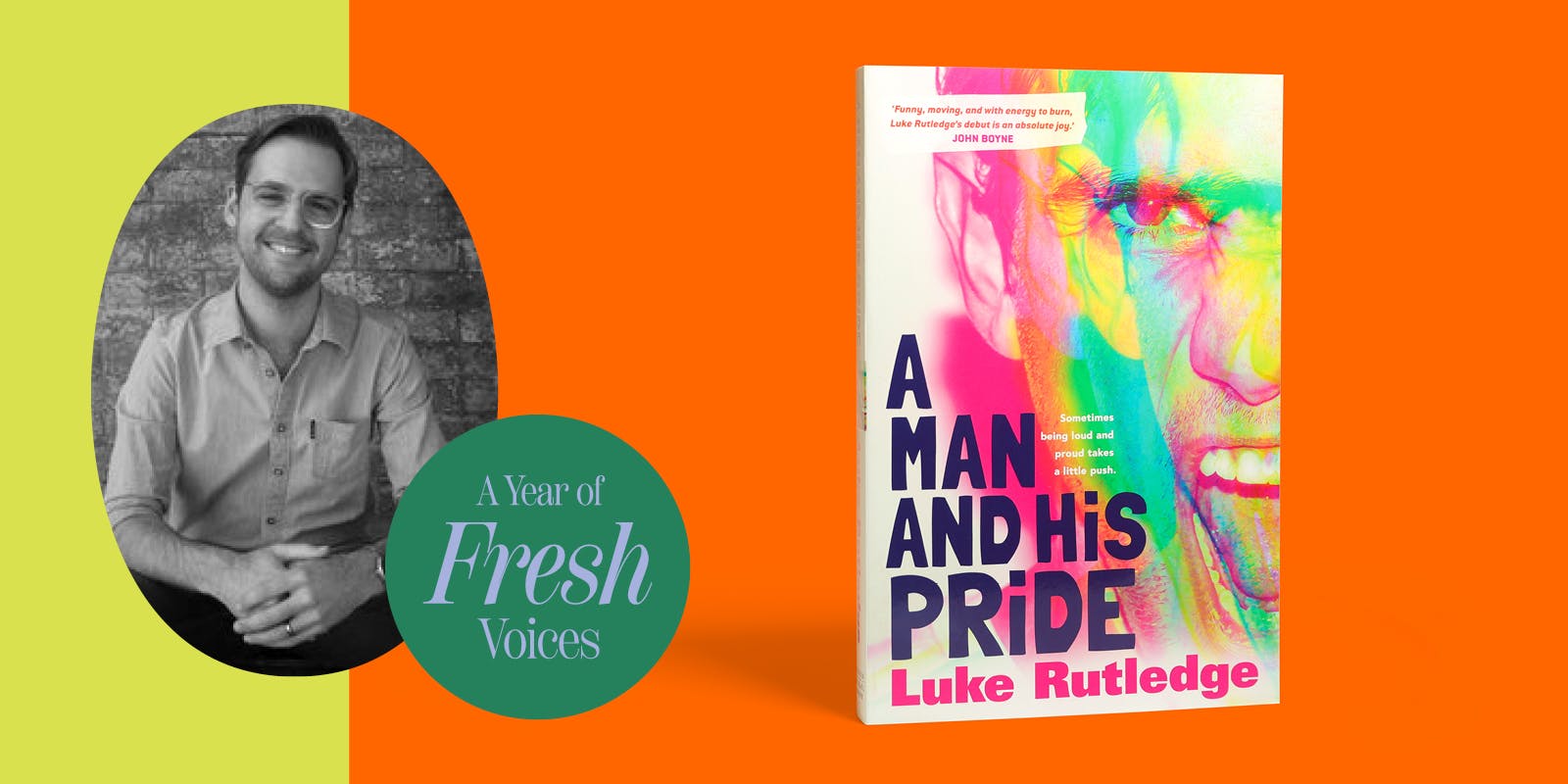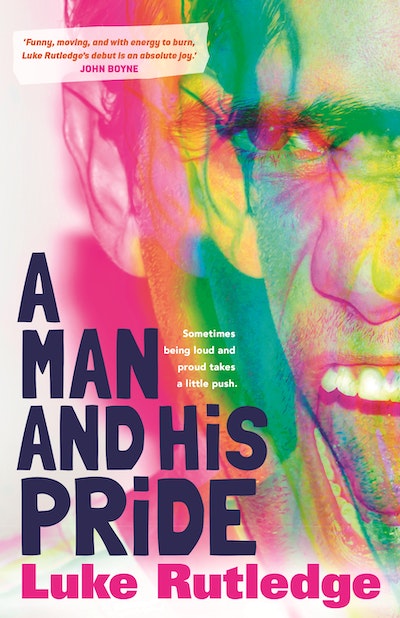We chatted to debut author, Luke Rutledge to learn more about his new book, A Man and His Pride. Luke explained the publishing process and why he chose to write about what happens after the ‘coming-out’ moment.
What was your writing process like for A Man and His Pride?
I work full-time, so I wrote the novel in the early mornings, starting around 5 am (even if I didn’t feel like it!). Occasionally on weekends, I wrote at the Queensland State Library overlooking the river and Brisbane city, but mostly it was non-glamorous and involved no rituals other than a coffee and me sitting at a desk, with my phone away so I didn’t get distracted.
So much of the writing also happened in between writing sessions – thinking about what was going to come next or trying to problem-solve a particular issue. That could happen at any time of the day, including when driving, walking, or while in the shower.
How did you first come up with the idea for the book?
After trying my hand at a few YA manuscripts, all of which were your typical ‘coming out’ stories in one form or another, and after receiving some advice from an agent that I should consider toning down some of the adult content to make it more suitable for younger readers, I decided to do the opposite and write my first adult novel. I didn’t want to write another ‘coming out’ story, but knew I wanted the central character to be a gay man and for the story to revolve around his sexuality in some way.
It occurred to me that I had rarely come across stories that focused on what happens after the coming out moment. Coming out isn’t just a one-off event, after all, it’s a whole journey. For so many gay people, it involves processing a lot of internalised homophobia and figuring out how to have healthy same-sex friendships and relationships. I’ve met gay men who haven't seemed to take that next step of self-acceptance, so I was intrigued to explore it through a story.
What was your big break into publishing?
I guess it was the publication of this book! My first real success with it, however, was signing with an agent. That in itself was the first hurdle I knew I had to overcome, but I also knew it was a long shot, having received lots of rejections from agents regarding previous manuscripts.
How long have you been working on this book?
I started the first draft in September 2020, signed with my agent in February 2022, and secured the publishing deal in April 2022. I did three drafts before submitting it to agents, and there have been countless drafts since!
What was the publishing process like?
It was extremely daunting sending out my manuscript into the world, knowing the chances of being rejected were far greater than being accepted. When I began querying agents, I expected that I might get some constructive feedback, at best. Once it all started happening, however, things moved very quickly.
I immediately loved the process of receiving editorial feedback. The advice I received from my publisher, editor and agent helped elevate the story, and hearing industry professionals talking about my characters and story was totally surreal.
It can be overwhelming to receive big-picture feedback where you’re asked to consider fleshing out characters or cut certain scenes or whatever the change might be – especially when you know making those changes will have a snowball effect on the rest of the story. But I learned how to break down that feedback into bite-sized tasks and really enjoyed the challenge.
What most excites you about your book being published in 2023?
When it comes to my writing, I’ve always been very private and reluctant to share whatever it is I’m working on. So putting this story out into the world is simultaneously the most terrifying and exciting thing about getting published.
It will be such a surreal experience to find out what other readers think, and I’m genuinely looking forward to hearing about how others react to the story. The idea that other gay readers might find certain aspects of the story relatable and appreciate seeing their own experiences reflected in a book is also something that excites me.
Do you have a favourite book or author?
It changes depending on what I’m reading, but for the past few years my favourite book has been Eleanor Oliphant is Completely Fine by Gail Honeyman. I fell in love with Eleanor from the first page and became so engrossed in how her story unfolded. That book was at the front of my mind when I began to write A Man and His Pride. Other favourite authors are John Boyne, Ben Elton and Liane Moriarty. My favourite books include A Little Life, The Secret Life of Albert Entwhistle and Harry Potter.
What inspired you to become a writer?
I don’t know if there was anything that inspired me specifically – I was just drawn to writing stories from a young age. I remember in grade six becoming so impatient with waiting for the fifth Harry Potter book to be published that I decided to write my own Potter story myself! It was a complete rip-off, obviously, but I found the process so satisfying that I kept writing stories and have never stopped.
What did you want to be when you grew up and why?
I went through various stages of wanting to be so many things – from an actor and a director (I loved musical theatre as a kid) to a classical musician (music was my other great passion when I was younger, and I did pursue this through university). Since grade six, however, the one constant – and the thing I kept returning to – was writing. There’s something so private and autonomous about writing that has always appealed to me. Getting to control an entire world and make up characters is super fun and satisfying!
If you could go back in time and give your past self one piece of advice, what would it be and why?
Don’t be so uptight about succeeding, or anxious about failing. Just keep going and enjoy the ride.
What is the best writing lesson/tip you ever received?
Don’t spend time rewriting or editing anything until you’ve reached the end of the first draft. The most important thing is to get to the end and accept that your first draft is likely to be terrible. A completed first draft can be improved, but a blank page – or even an unfinished manuscript – cannot.
Check out more great books coming in 2023.













